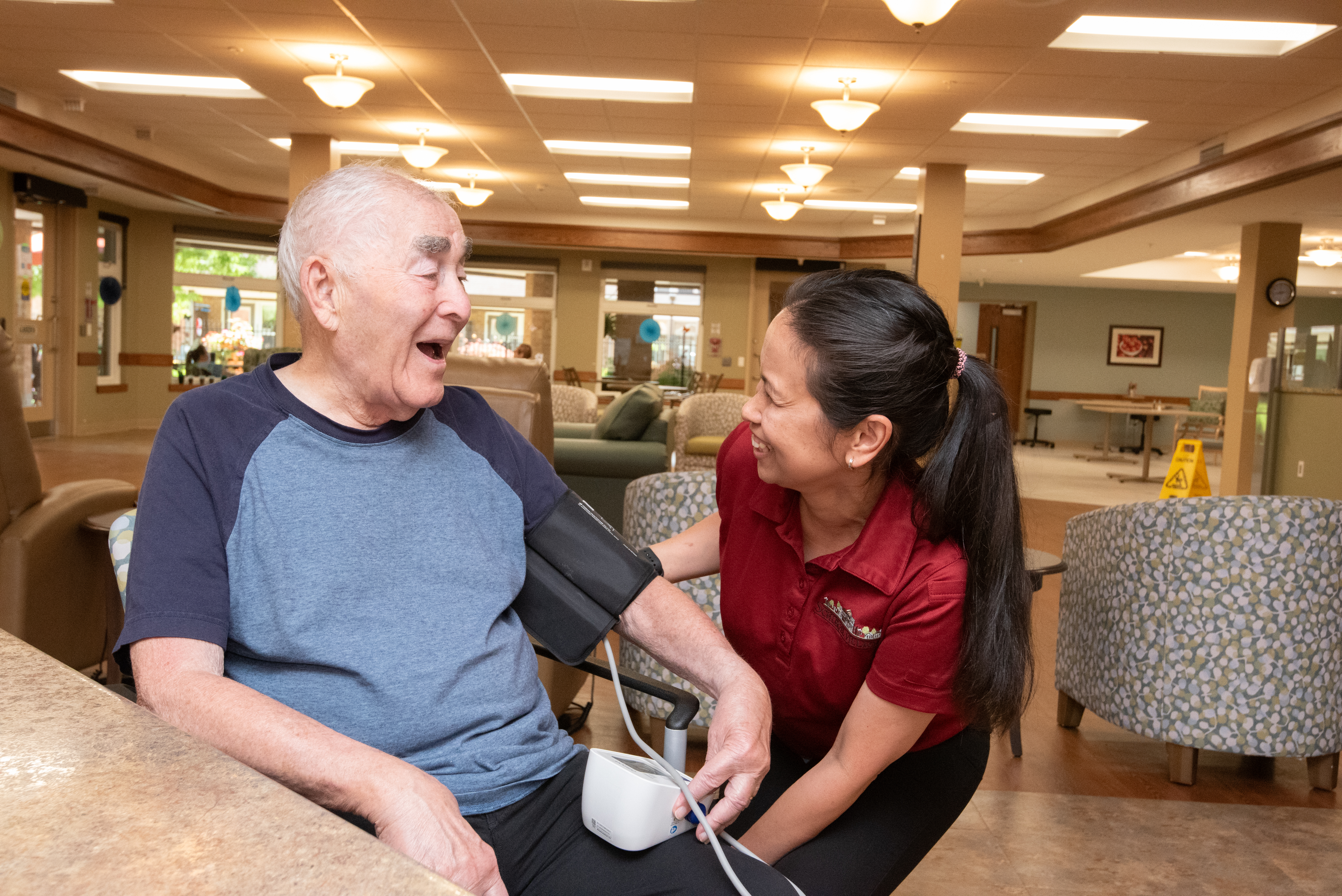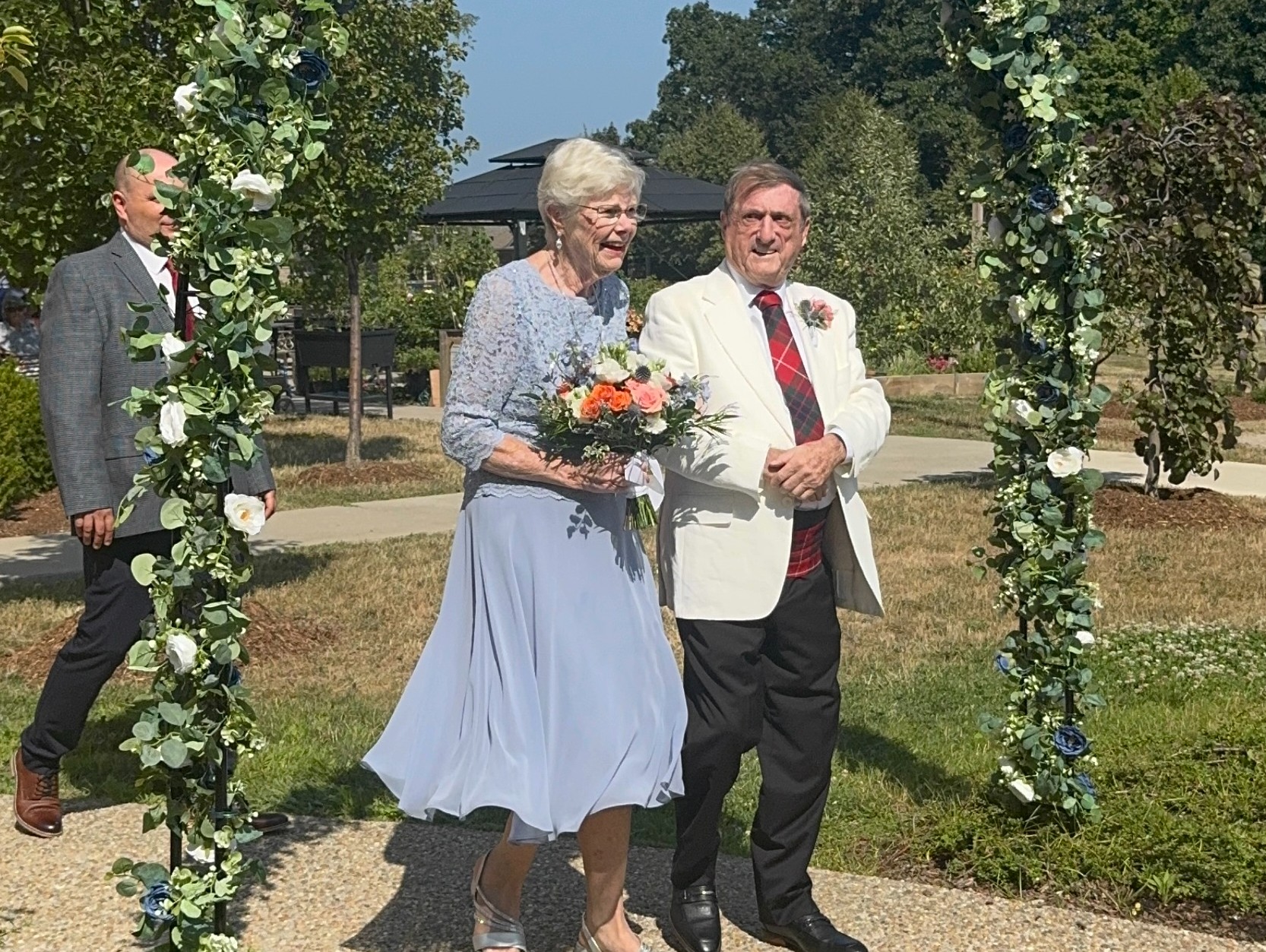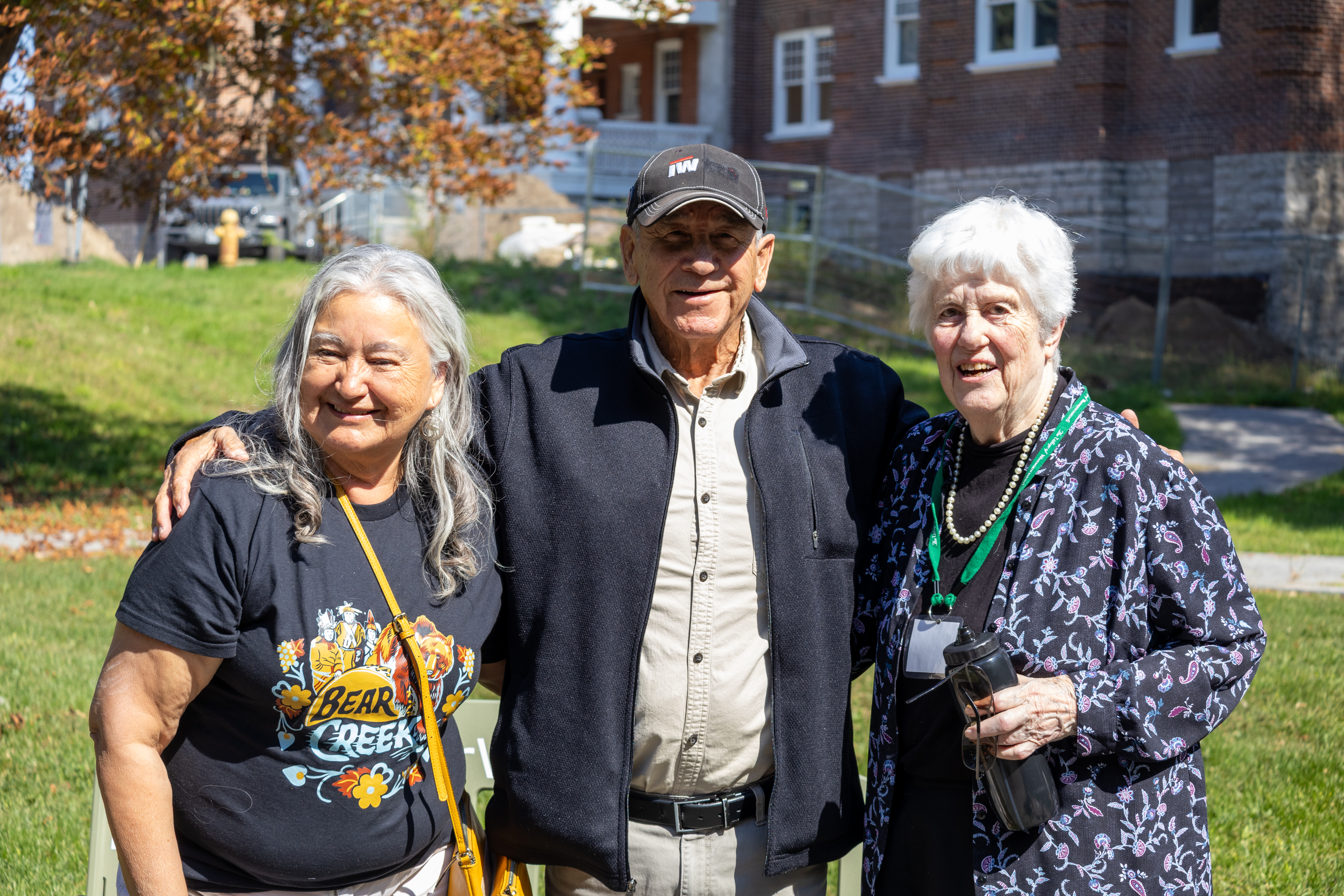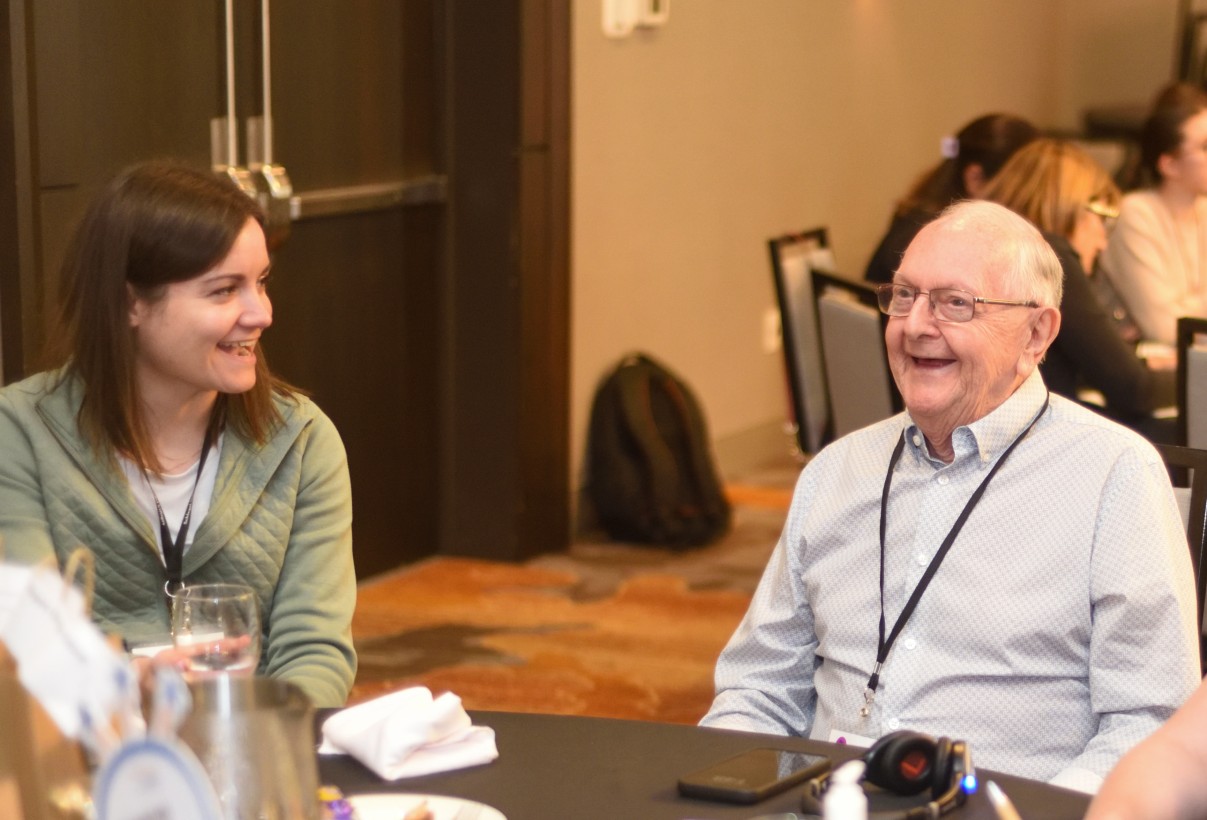It’s one thing to be trained to provide personal care for someone who is physically or cognitively unable to provide it for themself. It’s another thing entirely to know what it feels like to have someone provide that care for you – to have someone brush your teeth or your hair for you, or dress you or feed you.

The ERCC program is enhancing care in the villages by
helping team members empathize more with those they serve.
In that circumstance, you are quite simply at the mercy of another person.
The Excellence in Resident Centred Care (ERCC) Program was developed through partnership between the Schlegel-UW Research Institute for Aging, Conestoga College and Schlegel Villages to offer caregivers a sense of what it must feel like to be at someone else’s mercy. The peer-taught program, based on principles of experiential learning, opens the door to a new sense of empathy for caregivers and its impact is being felt not only within Schlegel Villages but in care homes across Canada.
Ontario’s Ministry of Health and Long-Term Care recently invested $4 million to create the Personal Support Worker Education Fund to strengthen the caregiving workforce, and the ERCC program is a central part of that initiative. But it’s not only PSWs who benefit from the teachings. Anyone who works in a long-term care or retirement setting as part of a truly cross-functional team should understand what it means to put the resident at the centre of all decisions and actions.
Maggie Jakab is the manager of food services at the Village of Tansley Woods in Burlington, and the ERCC program has had as much of an impact on her as any of her fellow team members providing more direct, personal care on a day-to-day basis. Maggie participated in the program when it was first developed close to 10 years ago and recently took part in the newly augmented version, which she says is much more in depth.
“I love the course,” Maggie says simply. “It really makes you feel everything – they blindfold you and they feed you, for example, and I jumped every time they touched my lip. That experience – you can’t beat it. You can read textbooks, black and white, as much as you want but the hands-on experience, that is the best part.”
She’s proud of her fellow team members in environmental services, food services and recreation who are excited to participate in the program, because it shows they care and they want to know more about person-centred care.
Nemia Perlas has worked in the retirement neighbourhoods at Tansley Woods as a PSW for the past three years, most often in Emma’s supporting residents living with dementia. She was also among the recent cohort of team members to take part in the ERCC program, and she says its impact was immediate.
“You experience the feelings of the residents when you are giving them care,” she says, “so you’re going to be more cautious, especially with people who are living with dementia.”
She points out that one of the most important things to consider in providing the best in resident-centred care is to do everything possible to know the person you are supporting. This helps build a sense of trust and creates a more comfortable space for both caregiver and receiver. And ultimately, she adds, one must take pride in providing the best in care. The ERCC program is one more tool to make this happen.
- Previous
- View All News
- Next
































































































































































































































































































































































































































































































































































